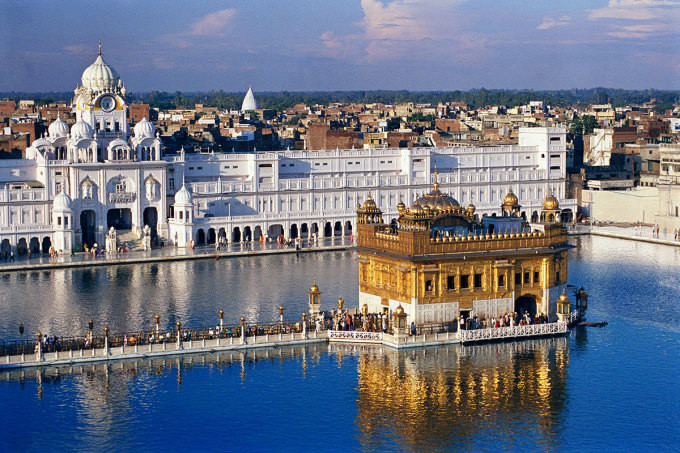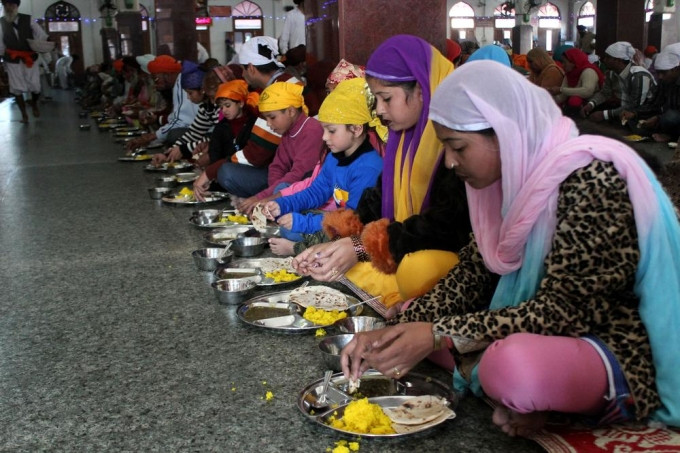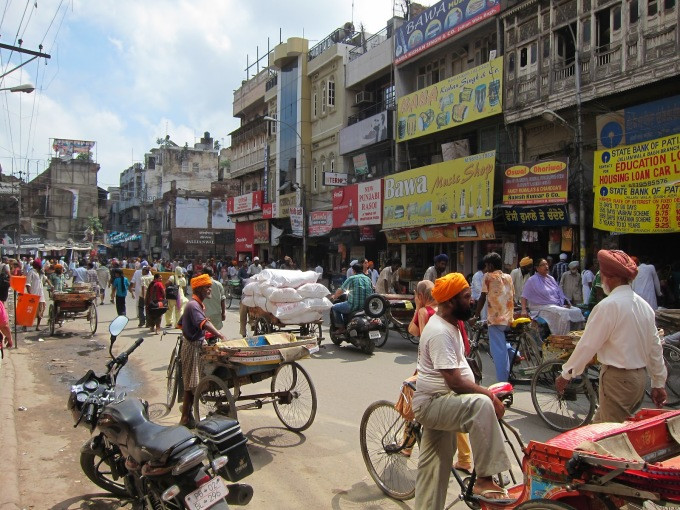No one staying or visiting Amritsar city will ever go hungry as this place provides free meals 24/7.

The northern Indian city of 2 million, Amritsar, is known for its delicious food, historic old town and the majestic Golden Temple, the most important shrine of Sikhism. But what stands out most is the generosity that visitors can see everywhere, from inside the temple to on the streets.
Amritsar was founded in the 16th century by a Sikh. This religion is known for its tradition of seva or voluntary assistance to others without expecting anything in return.
In Amritsar, the practice of seva is taken to a whole new level. The whole of India knows that no one goes to bed hungry in Amritsar because there is always a hot meal ready for anyone at the Golden Temple.
The temple kitchen is known as the world's largest free communal kitchen, which can feed 100,000 people a day, seven days a week. Everyone is welcome to dine here without discrimination. Meals are provided 24 hours a day.
Sikhs around the world perform seva at gurudwaras (Sikh temples) with simple acts such as cleaning the floors, serving breakfast, and maintaining order in the temple. Devotees also perform seva in their daily lives, such as giving alms.
Abhinandan Chaudhary, 23, who has been doing seva with his family since he was 8, said another name for seva is “love”. The religion’s common teachings are to do good deeds in secret and to value altruism. “If you are doing seva with your left hand, even your right hand should not know,” Chaudhary said.
Michelin-starred chef Vikas Khanna, who lives in New York but was born and raised in Amritsar, says the city has a giant communal kitchen where everyone can eat. “The whole city can eat there,” he says. When India was locked down due to Covid-19, Khanna also distributed millions of free meals in his hometown to support people.

Like all Sikh temples around the world, the Golden Temple is run with the utmost discipline and smoothness by an army of volunteers who cook simple but delicious meals of lentils, chapattis (flatbread), chickpea stew and yogurt on stainless steel plates day in and day out.
In the large halls of the Golden Temple, it is a familiar scene with about 200 people sitting cross-legged on the floor and eating. Some people leave after finishing their meals, others ask for more food. After about 15 minutes, volunteers clean the hall once more and prepare for the next serving. The process of providing food - cleaning - providing food goes on continuously and non-stop all day long.
Not only in the Golden Temple, the generosity and friendliness of the people is also clearly shown on the streets. When tourists visit, the thing they receive the most is smiles. "If we appear lost or confused and stop in the middle of the road, someone will immediately come up and ask if we need help," said a tourist. In addition, tourists are often reminded by locals to be careful with their bags and personal belongings in crowded places.
When visitors come to the restaurant, everyone will quickly sit down to make room for new guests if the restaurant is full. Visitors coming here will always feel welcomed and shared.
Rahat Sharma, a local, said that living in Amritsar gave him the feeling of living in a big community. People always cared and loved each other regardless of their religion or not.

In addition to enjoying the warmth of the locals, visitors can take time to visit the famous Golden Temple; the beautiful old town with its maze of narrow streets, alleys and small squares; and the bustling markets. Enjoying the local cuisine is also a suggestion. Visitors can try street food such as flatbread, green bean stew, rice pudding served in a traditional clay pot or drink a glass of buttermilk.
“In Amritsar, no matter how bleak and dark things seem, kindness, love and generosity always seem to prevail,” says Indian journalist Vaishali Sharma.
TB (according to VnExpress)